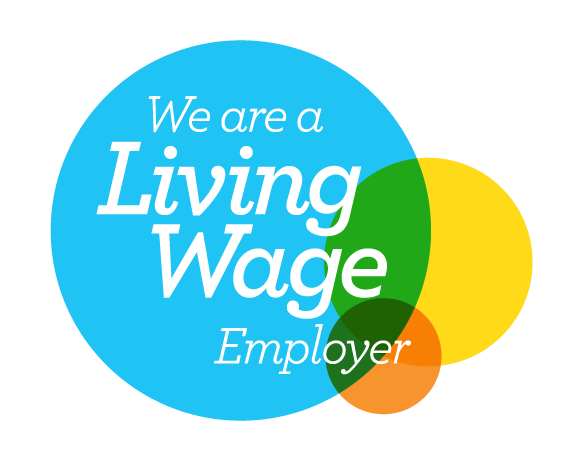A Guide To Flexible Energy Contracts for Energy Managers
In today's volatile energy markets, the need for smarter, more strategic procurement has never been greater.
For energy managers, navigating between fixed and flexible energy contracts is a critical decision that can impact both budget certainty and cost efficiency. This guide explains the fundamentals of flexible energy contracts, their benefits, and considerations to help determine their suitability.

What Are Flexible Energy Contracts?
Flexible energy contracts enable organisations to purchase energy in multiple tranches throughout their supply contract duration instead of fixing all consumption at a single market price. They are ideal for high-volume users, typically consuming over 100,000 kWh of electricity or 200,000 kWh of gas per month.
Rather than being constrained to one moment in the market, flexible purchasing allows businesses to proactively manage market risk. It is important to ensure that a suitable energy risk management strategy is implemented to manage market risk in accordance with your businesses aims and appetite for risk.
Key Benefits of Flexible Contracts
1. Price Risk Management Over Time
Flexible contracts allow for risk exposure to be spread across multiple purchasing decisions, smoothing out the market extremities and allowing for purchasing up to five years ahead.
2. Multiple Purchasing Opportunities
By avoiding a single-point-in-time purchase, organisations reduce the likelihood of fixing at an unfavourable rate. This allows opportunities to secure better average prices relative to market highs.
3. Direct Access to Wholesale Markets
Typically reserved for major energy users, flexible contracts give you access to wholesale energy prices through collective purchasing or risk-managed frameworks.
4. Transparency in Non-Commodity Costs
With pass-through billing, non-commodity charges (e.g. transmission, distribution, levies) are invoiced at actual rates, without additional supplier margin, enhancing visibility and potentially lower costs.
5. No Take-or-Pay Clauses
Flexible contracts typically allow regular consumption reforecasting, helping businesses reduce the risk associated with under or over consumption clauses.
6. Custom Purchasing Strategies
Flexible contracts allow for tailored procurement strategies based on specific risk profiles. This enables continual optimisation, rather than re-evaluation only at contract renewal.
Flexible vs. Fixed Contracts: What’s the Difference?
- Fixed Contracts lock in a price for all consumption over the contract term (usually 1–3 years). This provides increased budget certainty but exposes the buyer to market conditions on a single day.
- Flexible Contracts allow purchases to be made incrementally. This spreads market price risk over a longer duration.
In simple terms, flexible purchasing gives the business the opportunity to adopt a risk managed purchasing strategy aimed at spreading market price risk and delivering in accordance with risk appetites.
The Strategic Advantage of Long-Term Planning
Flexible frameworks spanning 3–5 years enable businesses to plan strategically. Instead of reacting during renewal periods (which may coincide with market highs), flexible purchasing allows a business to take advantage of price dips and distribute cost impacts.
Relying on a single day market decision can be risky. By spreading purchasing decisions over time, flexible strategies help manage the impact of market volatility and support longer-term financial planning.
How Purchasing Works in Flexible Contracts
Experienced risk managers monitor live energy markets daily to determine the optimal time for purchases. With access to trading screens, market fundamentals, and technical indicators, procurement teams execute transactions when the market presents value.
Energy managers typically receive:
- Monthly market updates
- Detailed position reports
- Real-time trade confirmations
At Optimised, this process is fully managed by our Utility Management team to remove the burden from internal resources.
Seasonal Variations and Cost Transparency
Expect some month-to-month variation in energy costs. For example, wholesale energy prices are generally higher in winter due to increased demand and lower in summer.
Because non-commodity costs are passed through transparently, businesses can also see financial benefits from energy efficiency projects much sooner.
Is Flexible Procurement Right for You?
Flexible energy contracts are well-suited to organisations that:
- Consume large volumes of electricity or gas
- Want to manage wholesale market price risk
- Need agile strategies in volatile markets
- Value transparent pricing and adaptive strategies
While more complex, flexible contracts can deliver considerable long-term benefits, particularly when paired with expert risk management support.
How a Specialist Energy Partner Can Help
Working with a dedicated risk management team can simplify the complexity of flexible energy purchasing. With the right market experience, professionals can monitor markets, make informed procurement decisions, and report transparently, allowing business stakeholders to focus on strategic goals rather than day-to-day energy market tracking.
The Optimised Approach: Customer FAQs
At Optimised we have extensive experience in managing flexible contracts and risk, having done so for over 15 years. Here are some frequently asked questions from our customers when implementing flexible energy contracts.
Can I create a custom strategy?
Yes. Large users can define tailored risk profiles and trading parameters. Smaller users can access wholesale prices via collective baskets, achieving cost advantages with reduced complexity.
When will I know my final price?
It depends on the structure of your flexible contract. If you are using a shaped flexible product, your commodity cost for a given period is known once 100% of the volume is hedged for the respective period. However, if you're on a cashout or reconciliation-based product, the final price may only be confirmed retrospectively, based on actual consumption and settlement rates. This will be clarified as part of your contract setup.
How frequently can you buy and in what volumes?
Energy can typically be purchased in minimum blocks of 0.1MW (electricity) or 100 therms/day (gas). With sufficient basket volume, we may execute thousands of purchases per year depending on market opportunity.
Is there a price cap or collar?
Flexible contracts can include caps or collars if suited to your risk profile and aims. Utilisation of these trading parameters can prove effective and are often focused on direct management of market price risk and budget protection. However, risk can be managed via an array of methodologies, some of which focus on spreading risk and indirectly mitigating market price risk. .
How do you decide when to buy?
Our team constantly monitors live markets. Decisions are based on a combination of market fundamentals, technical analysis, risk models, and trading experience, rather than purely on price targets. Trades will always be reviewed against risk management strategies to maintain compliance on an ongoing basis.
--------------------------
We trust that, uninitiated to flexible contracts, you find this document helpful. This FAQ only scratches the surface of what is possible within flexible contracts and we encourage you to get in touch to find out more about how a flexible contract can work for you. We have extensive experience and expertise in managing energy commodity price risk for a wide portfolio of clients with a wide variety of risk profiles. For our clients, we leverage our industry expertise and extensive network to secure competitive energy contracts and design risk management strategies bespoke to each clients’ risk appetite.

Article by Mike Stafford
Flexible Procurement and Risk Manager
With over 20 years of industry experience, Mike is a seasoned energy professional specialising in risk management and trading. His career spans consultancy, independent suppliers, MOPs, major energy firms, and cost recovery companies—bringing a broad and practical understanding of the UK energy landscape. Passionate about demystifying complex markets, Mike excels at translating data signals and industry developments into clear insights that empower clients to make confident, informed decisions.
BOOK YOUR 30-MINUTE ENERGY MANAGEMENT CONSULTATION
Fill in your details below to arrange a complimentary consultation with one of our experts. They will give you bespoke advice to help your business achieve all its energy needs, reducing cost, consumption and carbon.









